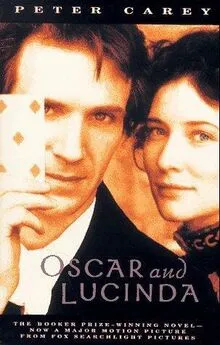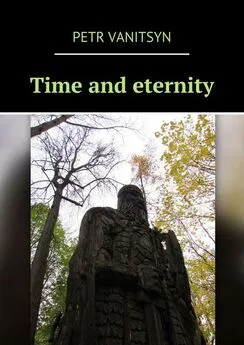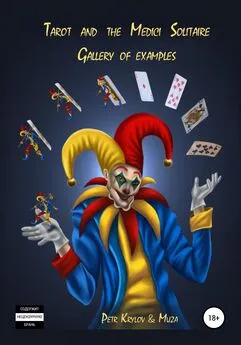Peter Carey - Oscar and Lucinda
- Название:Oscar and Lucinda
- Автор:
- Жанр:
- Издательство:Vintage Books
- Год:1988
- Город:New York
- ISBN:0-679-77750-4
- Рейтинг:
- Избранное:Добавить в избранное
-
Отзывы:
-
Ваша оценка:
Peter Carey - Oscar and Lucinda краткое содержание
The Booker Prize-winning novel-now a major motion picture from Fox Searchlight Pictures.
This sweeping, irrepressibly inventive novel, is a romance, but a romance of the sort that could only take place in nineteenth-century Australia. For only on that sprawling continent-a haven for misfits of both the animal and human kingdoms-could a nervous Anglican minister who gambles on the instructions of the Divine become allied with a teenaged heiress who buys a glassworks to help liberate her sex. And only the prodigious imagination of Peter Carey could implicate Oscar and Lucinda in a narrative of love and commerce, religion and colonialism, that culminates in a half-mad expedition to transport a glass church across the Outback.
Oscar and Lucinda - читать онлайн бесплатно полную версию (весь текст целиком)
Интервал:
Закладка:
The thing that made Mr Jeffris so proud served only to paralyze Oscar. He would be called to travel in a boat.
Dear God, give me hard and difficult things. Give me a rocky path that I may not sin. Mr Jeffris loved to talk of rivers, mountains, trigonometry. He Promised Oscar he would have him delivered to Boat Harbour, and do not fear. There was no risk from drowning. >..;.;.,••<
Oscar and Lucinda
Oscar had not known about these rivers when he talked about going overland. The Hastings, the Clarence, the Macleay, these rivers now snaked through his dreams. They were miles wide, bruised and swollen by the rain.
He was ill with fear at the thing he had begun. When he woke from sleep it was there to meet him, as cruel as death.
He thought: I will drown.
He thought: Dear God, take my soul into Thy safe-keeping.
He thought: I love her. He thought: I am impure. In the kitchen they bit each other, dragged at their faces. They wedged themselves together against the door jamb like two clothes pegs. The Reverend Mr Stratton had hanged himself from the rafter above his pulpit. Wardley-Fish must already be in Sydney searching for his friend who was ashamed and hid from him. He lusted after a woman who loved another.
He thought: God, do not have me lead her into sin.
He thought: There is no God. There is nothing. I do not have to cross these six rivers. I do not have to travel with mad Jeff ris with his cornpasses, his journals, his trained criminals, his dumbbells, his picks, his carpenter, his saddler, his three brass chronometers. I am someone put backwards on a horse and paraded through the bush for ridicule. He was baggage, carried by Mr Jeff ris, his ticket paid by Miss Leplastrier.
But he had promised God he would do this. I Although only because he wished Lucinda to love him. j!i >. Did she not love him? j Did she say so?
No, she did not. She kissed his lips and made them as blue as ink, but when he had offered to marry her, on Christmas Day, she had fled, weeping, to her room.
Why was this?; Because she loved Hasset.
Then why go through this danger, this risk, this crippling fear?. So she would love him. Because he had promised God. So he would not be cast into hell.
If there was no God?
But he had bet there was a God. He had bet on Goodness. He had bet he would be rewarded in paradise. He had bet he would carry this jewel of a church through the horrid bush and have it in Boat Harbour by Easter.
His life was riddled with sin and compromise. Mr Stratton had
A Reconciliation
wrapped a rope around his neck and committed the sin of suicide. God forgive him. He was murdered by Oscar Hopkins's system.
He had posed as a holy man to Wardley-Fish. He had enticed him to Botany Bay and then hidden from him.
He could not love his father enough. He had written "dearest papa" but he had been happiest when he was away from him. He had left this good and godly man to die alone and unloved except by his unlettered flock.
Give me a hard journey, dear God. Deliver me from evil. Lead me not into temptation. And then, inside the scullery, at breakfast, he offered his bruised and swollen lips to Miss Leplastrier, and the devil played the tune, and then he saw, in the corner of his mind, the possibility that the glass church was just the devil's trick. Mr Ahearn was right. It would be too hot. The congregation would curse Christ's name.
90
A Reconciliation
Mr d'Abbs had been to Miss Leplastrier's office on four occasions before he found her, at last, inside. He had come up those three wide sets of stairs four times, rehearsed his little speech four times, but when he found her, on the fifth, the meeting did not progress as he had rehearsed it. His first thought was: Consumption.
Her skin was very pale, stretched; it was shining, slightly blue, translucent. Her eyes seemed overly large, the whites not white but that bluish grey you find in certain porcelains. Her manner, in that bright, hot, sun-drenched room-all the windows open and papers smacking each other on a green felt board, and fluttering under glass-bottle Paperweights-seemed too fast, too frantic to Mr d'Abbs who immediately forgot his speech, which was all to do with the lasting value of
Oscar and Lucinda
friendship, that it should not be thrown away through one simple misunderstanding, but that friendship was what he valued more than anything in life. Except that one might guess that he was using "friendship" when what he really meant was "companionship," this was spoken truly. He had brought her a cribbage board and a signed edition of his friend Hill's engravings of Pittwater. He had intended to make the speech and then give the gifts, but when he saw how she looked he was overcome by thoughts of her mortality, and he pressed the gifts on her without proper explanation of his feelings.
He had dressed carefully in his splendid cream linen suit and his white straw hat. He had chosen the colours at least half-conscious of their symbolism: the blank page, the clean start, and if he had it in mind to say anything about Mr Jeffris, it was only as a by the by. But now, so disconcerted was he by Miss Leplastrier's over-bright appearance, that he mentioned Jeffris when she was still opening his gifts.
"Oh, by the by, Miss Leplastrier," he said, closing one of her windows without thinking what he did. (He could not bear paper fluttering in a room.) "You do know about Mr Jeffris's passion, do you not? It occurred to me that you might not. It is impertinent to mention it, were we not such old friends."
This was a dangerous tack to take, and he knew it. He could easily give the impression that he wished to sabotage her project and that he had come here, only pretending friendship, in order to assassinate the character of her trusted guide. And yet he could not protest friendship without telling her: Jeffris was a dangerous fellow, and although you could have him in your employ in an office where he might, like a guard dog on a leash, be at once frightening and useful, it would not be the same to entrust your life to his ambitions.
When he mentioned Mr Jeffris's passion he saw Lucinda tense and he feared he had "set her off" again.
"Oh, Mr d'Abbs," Lucinda sighed, then smiled (Mr d'Abbs thought: Her arms are thin, they were not so thin before). "Do tell me about Mr Jeffris, for I see you have come here with his 'passion'
most particularly in mind." And smiling very broadly, so broadly that Mr d'Abbs could easily have felt himself quite patronized, she sat herself behind her desk and folded her arms across her bosom.
"Indeed," said Mr d'Abbs, "it is not so." There was no chair for him to sit on. He would have shut the second window, but he judged she would misinterpret it. "Quite the contrary. The reverse. I came here intent on keeping it under my hat. I thought: It is not my business, no more than how many windows you wish to have open.
A Reconciliation
I really do take it very ill to be so uncharitably interpreted."
"Forgive me."
"You do not wish to be forgiven, you little scallywag. You completely lack the conventional sense of sin, upon my word I swear it is true."
"Indeed?" said Lucinda, quite pleased to be misunderstood in this particular way.
"Indeed, you have no shame. You are pure will, and I noted this in you when you first came into my office. You hold your chin high." (He thought: You can see the blood vessels in her neck; her lower lip is distinctly blue; these are not good signs.) "I said to Fig, it does not matter what the gossips say, she is above gossips."
Oh, that this were true.
"And what," she asked, "do the gossips say about Mr Jeffris?"
"See," said Mr d'Abbs with genuine admiration, "that is the other thing I always said about youthat you would not be diverted."
"So," said Lucinda, knowing herself flattered and surprised to enjoy such falsehood so immensely.
"So it is not gossip, but, please, really." He felt silly standing in front of her. He came to sit on the edge of the desk, but the desk was a trifle taller than the beginning of his bottom, and having attempted, with one or two discreet little hops which made him look a little like a mynah bird in a cage, he contented himself with leaning. "Really, it is most important that you know-he will use you."
"And I him," said Lucinda, but felt, even while she professed such certainty, the sort of panic and anger which Mr Ahearn had produced when he called the church a "folly."
"He cares only to make a name for himself with his trigonometry and explorations. He courted Mrs Burrows-what a pair, imagine it, eh? — so Miss Malcolm tells me, until he had everything transcribed from her husband's journals and then he courted her no more."
"I do not imagine Mrs Burrows would be so easily used."
"Mrs Burrows is not the tough old thing she pretends to be. And what do you mean with that little smile, but never mind. The point is: you wish Mr Hopkins to be delivered safely." It was cruel to speak to her like this. She said: "Mr Jeffris's trigonometry and explorations would seem the perfect qualifications."
"Mr Jeffris," said Mr d'Abbs, finally getting his backside on to the desk, "is a man in love with danger."
"You must realize, Mr d'Abbs, that I have interviewed Mr Jeffris at some length. We are engaged in this project," she gestured
Oscar and Lucinda
towards the sheets of paper which were pinned, as regular as the bricks of a wall, to the green felt board, "together. I find him to be fastidious."
"You are fastidious," said Mr D'Abbs. "Therefore he is fastidious. He is an actor. His performance will vary with his audience. If you wish to know him as I do you must hear him speak when he is alone with men. With women he is a different creature entirely. His every story, when he is with his own sex, ends with some chap fainting or hollering in horror when they see how brave old Jeffris had got himself bloodied or broken in some way. And now you have supplied him with the funds and he has a little army and he is out to make a name for himself."
"Mr d'Abbs," Lucinda said, "admit it: you have come to frighten me."
"I swear no."
"It was most ill mannered of me to steal away your clerk. Although I did not steal him. It was not my intention to steal, but still I can understand you might wish to punish me. This is why you speak to me like this."
"No," said Mr d'Abbs, waving his hands violently, "no, no, no. That is the past. I came to say nothing, to patch up our quarrel, and then I thought my silence hypocritical."
"Then what would you have me do?"
"Oh, please," said Mr d'Abbs. "Cancel the whole damn thing. It is too silly for words and you will make yourself a laughing stock."
Then he saw he had gone too far. He saw her face close against him, and he suddenly lacked the courage for the continued assault.
"Of course," he said, "I am a skeptic. It is probably a corollary of my age."
Читать дальшеИнтервал:
Закладка:









